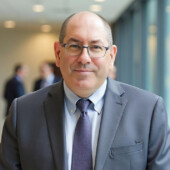Stomach and Small Bowel Conditions
For many years, Dr. Anthony Vine has had great success treating stomach and small bowel conditions laparoscopically. This minimally invasive approach reduces the risk of complications and allows for faster recovery time.
The following conditions can be treated with laparoscopic surgery.
- Stomach cancer
- Peptic ulcers with complications – perforations, bleeding and blockages
- Gastroesophageal reflux disease (GERD)
- Gastroparesis – delayed emptying of the stomach into the small intestines, caused by damaged in the stomach
- Benign and malignant stomach tumors or polyps
Laparoscopic small bowel resection surgery may be performed to treat the following conditions.
- Small bowel obstruction which may be caused by adhesions or scar tissue
- Inflammatory bowel diseases – Crohn’s and Ulcerative Colitis
- Diverticulitis – inflammation or infection of diverticula (small pouches that form in weakened sections of the intestinal wall)
- Intestinal perforations or fistulas
- Benign or malignant small bowel tumors
- Meckel’s diverticulum – a congenital condition in which a small pouch forms in the wall of the small intestines
Learn more information on Dr. Vine’s laparoscopic stomach and small bowel resection procedures.

